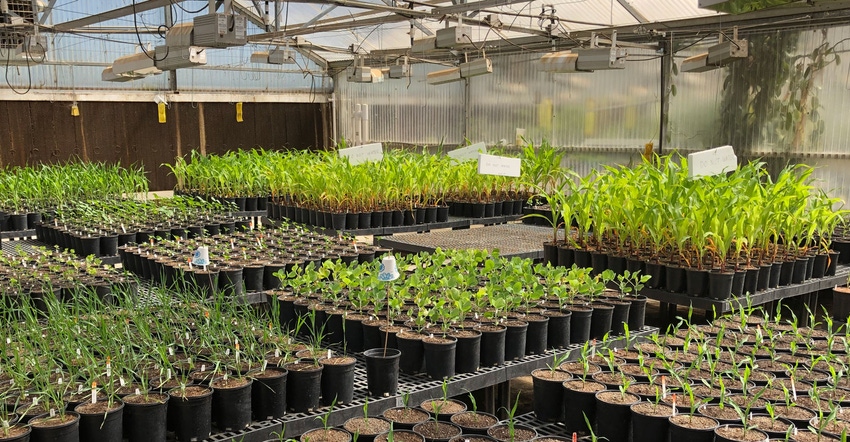January 21, 2021

Nitrogen is a critical component to the production of key crops including corn and wheat, yet there are concerns about how this nutrient is applied, and used, in agriculture. “Governments are looking at the impact of fertilizers, and concerns about fertilizers getting into groundwater or running off into streams,” says Marcus Meadows-Smith, CEO of BioConsortia, an innovator in the crop biological market.
He explains that the market is looking for alternative ways to bring key nutrients to crops, while working away from concerns about nitrogen loss. BioConsortia has a history of developing biological products designed to help crops better utilize available nutrients including phosphorus and potassium. And the firm has been working on tools to help crops fix nitrogen using beneficial plant-associated microbes. The tech got the attention of the Mosaic Co.
Meadows-Smith notes that getting into the nitrogen fertilizer business requires a significant investment, and Mosaic is working with agreements to do that, rather than build plant capacity. A recent agreement with Anuvia brings a nitrogen fertilizer using waste as a starting point. But Mosaic was seeking more, and BioConsortia offered a solid option.
The two firms — Mosaic and BioConsortia — recently announced a collaboration to develop and launch nitrogen-fixing microbial products for corn, wheat and other major non-legume row crops.
Meadows-Smith admits that BioConsortia was already having success in early development identifying microbes that work with plants to maximize available nitrogen use. “They wouldn’t have come to us if they didn’t believe we would come through with something that was going to fit their business,” he says.
Maximizing nitrogen use
The two firms are collaborating to develop beneficial products designed to reduce the amount of conventional nitrogen fertilizer application, while boosting crop yields and grower revenue. “[Mosaic] was looking for a game-changer that’s going to improve their top line and their bottom line,” Meadows-Smith says. “A small product wasn’t going to do that for them. They want something that will have a meaningful impact.”
BioConsortia has been growing plants under nitrogen stress, through successive generations, and exploring what biological products are at work in the soil biome. The company has a proprietary process that helps identify key microbes and their cooperative role in the soil. In that process, company researchers identified a species of microbes that naturally fix atmospheric nitrogen and make it available in a form the plant can use, Meadows-Smith explains.
That was the starting point of the research, which did identify microbes that will actually colonize on corn and wheat and fix nitrogen. But they encountered another challenge.
“Nitrogen fixation is a very energy intensive process for the microbe and therefore the plant that feeds it, so nature has put in natural feedback loops that switch off the process within the microbe,” he says.
Essentially, the microbe can do the job but is stopped by this natural mechanism, so the nitrogen isn’t made available. Meadows-Smith says the key was to switch off that mechanism so the microbe can keep doing what it does naturally. “We are gene-editing those microbes to sort of switch off that switch, so to speak,” he says. “We want the microbe to continue to fix atmospheric nitrogen and make it available in a form that’s useful.”
Working together
BioConsortia is having success, and with the Mosaic partnership, the two companies will work on the product. How it will be applied remains to be seen. It could be an in-furrow application that goes in at planting, or as a seed treatment.
The collaboration has a comprehensive development and field trial phase, followed by a distribution agreement for row crops in the Americas. The target crops include corn, wheat, cotton and sugarcane.
And Mosaic will also have market access to BioConsortia’s pipeline of phosphorus and potassium solubilization microbial products. Those tools could be combined with Mosaic’s range of potash and phosphate fertilizers to deliver next-generation fertilizer products.
It will be a few years before the new technology is on the market, but there’s growing interest in tools that help plants fix their own nitrogen, or maximize the nitrogen applied for crop production. You can learn more about BioConsortia at bioconsortia.com.
About the Author(s)
You May Also Like






